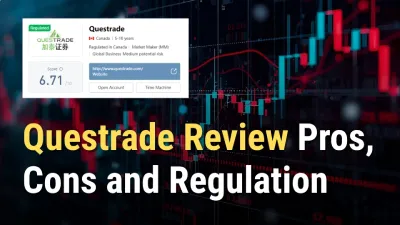简体中文
繁體中文
English
Pусский
日本語
ภาษาไทย
Tiếng Việt
Bahasa Indonesia
Español
हिन्दी
Filippiiniläinen
Français
Deutsch
Português
Türkçe
한국어
العربية
Analysis-ECB bond aid plan’s fault lines exposed by Italy’s political crisis
Abstract:A government crisis in Italy is complicating a politically sensitive plan devised by the European Central Bank to support indebted euro zone countries on the bond market before it even starts in earnest.

In an unprecedented effort to cap borrowing costs, the ECB said last month it would buy more of a given states bonds if its debt yields rose too far in an unwarranted fashion.
The scheme, using the proceeds of the ECBs existing bond holdings as well as a new mechanism to be unveiled next week, was a response to a sudden rise in yields across southern Europe.
The rise was most acute in Italy, largely due to investors pricing in slower economic growth and the impact of higher interest rates on its 2.5-trillion-euro debt pile.
But the latest surge in Italian bond yields and in the borrowing premium it pays over safe-haven Germany has been harder to interpret, as markets respond to fears of a collapse of Mario Draghis government, whose fate hangs in the balance.
This leaves the ECB in the awkward position of determining which part of the spread widening is “unwarranted” – or giving up buying Italys bonds altogether.
That decision has legal implications, as intervening in the middle of a government crisis would provide fresh ammunition to those who have accused the ECB, via its market transactions, of breaking the law by getting involved in politics.
Such criticisms – along with lawsuits challenging a long-running ECB asset purchase scheme – have been prominent in Germany.
Bundesbank President Joachim Nagel has this month fleshed out its latest concerns, saying that determining if a risk premium was justified or not was “virtually impossible”, and that market prices should be deemed as fair until proven otherwise.
“The spread widening is the result of the market reassessing the fiscal outlook and the prospect for reforms, so before a new government is known it‘s difficult to say that it’s unwarranted,” said Dirk Schumacher, an economist at Natixis.
Volatile spreads
The ECB is buying bonds from Italy, Spain, Portugal and Greece with some of the proceeds it receives from maturing German, French and Dutch debt in a bid to cap spreads between countries borrowing costs.
It is also working on a new programme to allow it to buy even more bonds from Southern European countries, using newly minted money that could then be offset by draining liquidity via reverse auctions or certificates of deposits.
In both cases, purchases can only be activated if what the ECB terms financial “fragmentation” between different countries is deemed unjustified.
When the ECB announced its plans on June 15, the closely watched spread between Italian and German 10-year bonds had hit a two-year high of 250 basis points. That helped narrow it to 186.
It is now back around 222 as investors weigh hopes of Draghi – Christine Lagardes predecessor as ECB president – staying against the risk of new elections, at which polls suggest the far-right Brothers of Italy may emerge as the biggest party.
That also begs the question of what subsequent rises might be considered warranted or not.
“The ECB will not and should not react to what is happening in Italy,” said Frederick Ducrozet, an economist at Pictet, adding that it could let the spread rise to 300 basis points without intervening.

Disclaimer:
The views in this article only represent the author's personal views, and do not constitute investment advice on this platform. This platform does not guarantee the accuracy, completeness and timeliness of the information in the article, and will not be liable for any loss caused by the use of or reliance on the information in the article.
Read more

Seaprimecapitals Withdrawal Problems: A Complete Guide to Risks and User Experiences
Worries about Seaprimecapitals withdrawal problems and possible Seaprimecapitals withdrawal delay are important for any trader. Being able to get your money quickly and reliably is the foundation of trust between a trader and their broker. When questions come up about this basic process, it's important to look into what's causing them. This guide will tackle these concerns head-on, giving you a clear, fact-based look at Seaprimecapitals' withdrawal processes, user experiences, and trading conditions. Most importantly, we'll connect these real-world issues to the single most important factor behind them: whether the broker is properly regulated. Understanding this connection is key to figuring out the real risk to your capital and making a smart decision.

iFX Brokers Review: Do Traders Face Withdrawal Issues, Deposit Credit Failures & Free Coupon Mess?
Have you had to pay several fees at iFX Brokers? Had your trading profit been transferred to a scamming website, causing you losses? Failed to receive withdrawals from your iFX Brokers trading account? Has your deposit failed to reflect in your trading account? Got deceived in the name of a free coupon? Did the broker officials not help you in resolving your queries? Your problems resonate with many of your fellow traders at iFX Brokers. In this iFX Brokers review article, we have explained these problems and attached traders’ screenshots. Read on!

NinjaTrader Exposed: Why Traders are Calling Out NinjaTrader’s Lifetime Plan & Chart Data
Did NinjaTrader onboard you in the name of the Lifetime Plan, but its ordinary customer service left you in a poor trading state? Do you witness price chart-related discrepancies on the NinjaTrader app? Did you have to go through numerous identity and address proof checks for account approval? These problems occupy much of the NinjaTrader review online. In this article, we have discussed these through complaint screenshots. Take a look!

Questrade Review Pros, Cons and Regulation
Is Questrade legit? Yes—CIRO regulated broker offering stocks, ETFs, forex, CFDs, bonds, and more with low fees and modern platforms.
WikiFX Broker
Latest News
Axi Review: A Data-Driven Analysis for Experienced Traders
INZO Regulation and Risk Assessment: A Data-Driven Analysis for Traders
Pepperstone CEO: “Taking Down Scam Sites Almost Every Day” Becomes “Depressing Daily Business”
The CMIA Capital Partners Scam That Cost a Remisier Almost Half a Million
Is Seaprimecapitals Regulated? A Complete Look at Its Safety and How It Works
eToro Cash ISA Launch Shakes UK Savings Market
Cleveland Fed's Hammack supports keeping rates around current 'barely restrictive' level
Delayed September report shows U.S. added 119,000 jobs, more than expected; unemployment rate at 4.4%
Close Up With WikiFX —— Take A Close Look At Amillex
GGCC Bonus and Promotions: A Data-Driven Analysis for Experienced Traders
Currency Calculator



